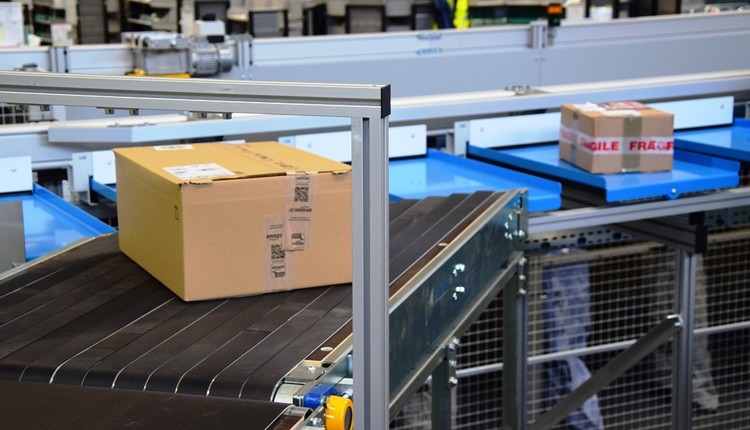According to the fifth edition of the UPS Business Monitor Latin America (BMLA), a study commissioned by UPS, executives of small and medium sized enterprises are sharply divided on whether the government can play a more important role in fostering competiveness among businesses. Half of the surveyed SMEs believe government regulations are favorable to their business, while the other half responded the contrary.
The difference is based on the size of the SME and the level at which they engage global trade. SMEs with two to nine employees and those not engaged in global trade are the ones that confirmed that they are impacted greatest by government regulations. Moreover, executives identified education and training followed by access to capital as the key areas governments should focus on in order to encourage competitiveness.
"Entrepreneurs are demanding a more active role from their governments in aspects like education and training, as well as providing access to capital, which are vital to foster competitiveness," said Jose Acosta, president of Latin American operations and public affairs for UPS Americas Region. "Latin American executives believe the government should support their efforts and work together with the SME community to take the region to the next level."
The role of technology and social media
The survey also revealed that executives find adoption of information technology as one of the most important aspects that contributes to competitiveness. SMEs have seen that customer service is the most improved business area due to the incorporation of new technologies.
"There is no doubt that the Internet has become an important ally for SMEs in order to grow and explore other markets, especially overseas," said Eduardo Gamarra, professor of Latin American and Caribbean politics at Florida International University. "Technology will be playing a more important role in the future for Latin America and that is great news, as there is a need to continue closing the technological gap in the region."
In recent years, social media has continued to grow exponentially in the region. According to the study, Latin American executives use social networks, Facebook and Twitter primarily, to communicate with clients and providers.
Although SMEs in Latin America have seen the benefits of technology for their business, they still face some challenges such as inadequate Internet connectivity and other security-related issues including viruses and spam.
For more information and materials on the BMLA, please visit: http://pressroom.ups.com/About+UPS/Business+Monitor/Business+Monitor+Latin+America
For a brief video on the announcement please visit the UPS YouTube link:
http://youtu.be/a6zsHy84TH8
# # #
About the UPS Business Monitor Latin America
The UPS Business Monitor Latin America (BMLA), now in its fifth edition, provides an outlook on the current opinions, attitudes and trends among the business leaders of the small and medium size companies (SMEs) in the Region. The results of this study are based on the solid experience of the interviewees in the world of industry and trade.
The difference is based on the size of the SME and the level at which they engage global trade. SMEs with two to nine employees and those not engaged in global trade are the ones that confirmed that they are impacted greatest by government regulations. Moreover, executives identified education and training followed by access to capital as the key areas governments should focus on in order to encourage competitiveness.
"Entrepreneurs are demanding a more active role from their governments in aspects like education and training, as well as providing access to capital, which are vital to foster competitiveness," said Jose Acosta, president of Latin American operations and public affairs for UPS Americas Region. "Latin American executives believe the government should support their efforts and work together with the SME community to take the region to the next level."
The role of technology and social media
The survey also revealed that executives find adoption of information technology as one of the most important aspects that contributes to competitiveness. SMEs have seen that customer service is the most improved business area due to the incorporation of new technologies.
"There is no doubt that the Internet has become an important ally for SMEs in order to grow and explore other markets, especially overseas," said Eduardo Gamarra, professor of Latin American and Caribbean politics at Florida International University. "Technology will be playing a more important role in the future for Latin America and that is great news, as there is a need to continue closing the technological gap in the region."
In recent years, social media has continued to grow exponentially in the region. According to the study, Latin American executives use social networks, Facebook and Twitter primarily, to communicate with clients and providers.
Although SMEs in Latin America have seen the benefits of technology for their business, they still face some challenges such as inadequate Internet connectivity and other security-related issues including viruses and spam.
For more information and materials on the BMLA, please visit: http://pressroom.ups.com/About+UPS/Business+Monitor/Business+Monitor+Latin+America
For a brief video on the announcement please visit the UPS YouTube link:
http://youtu.be/a6zsHy84TH8
# # #
About the UPS Business Monitor Latin America
The UPS Business Monitor Latin America (BMLA), now in its fifth edition, provides an outlook on the current opinions, attitudes and trends among the business leaders of the small and medium size companies (SMEs) in the Region. The results of this study are based on the solid experience of the interviewees in the world of industry and trade.



